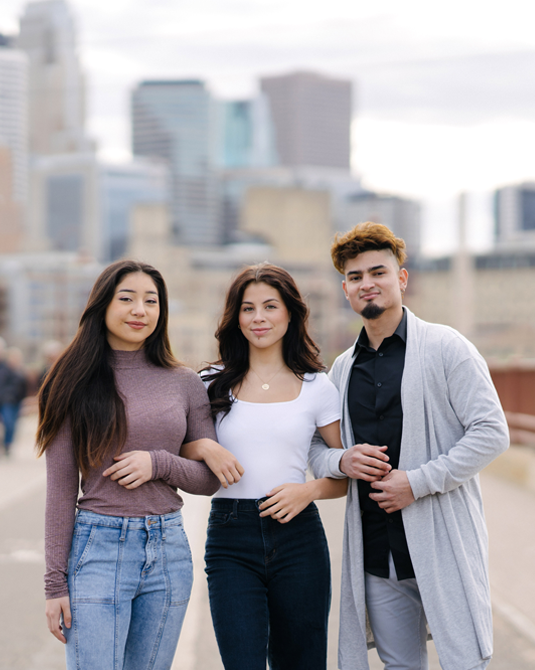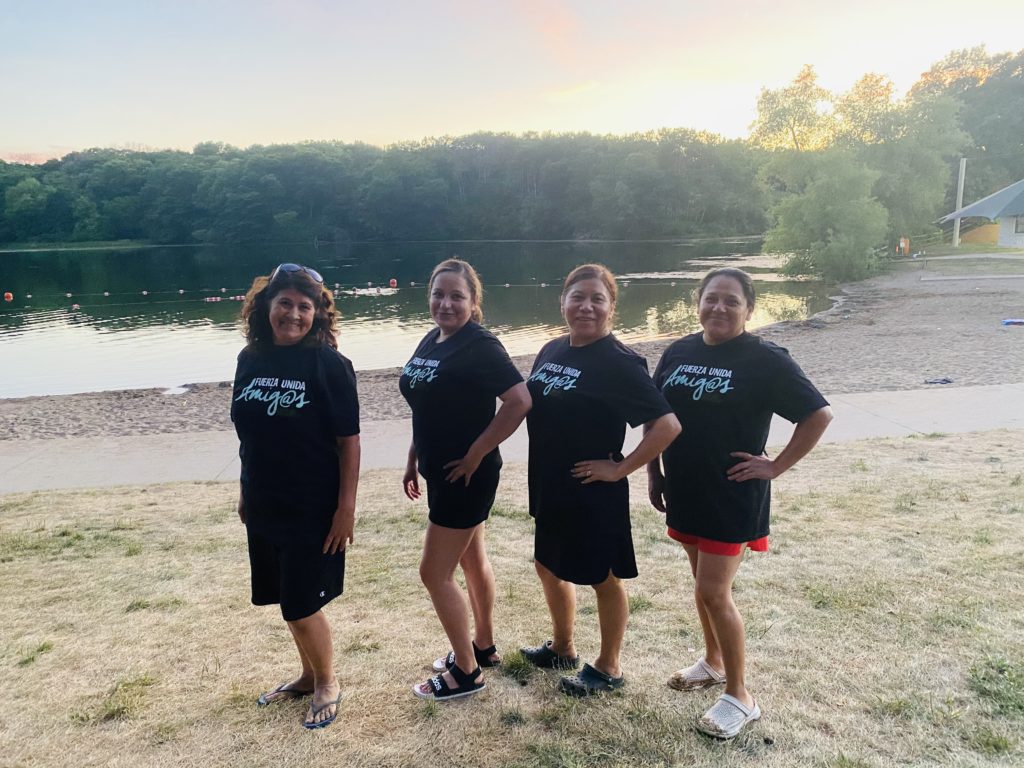Prevention and social change

From the very beginning, Esperanza United has belonged to the Latin@ community. We believe that each participant or community we work with is their own best expert; they know their reality better than any outside force. To effectively bring about change, community participation in the development, delivery, and evaluation of our work must be – and is – fully embraced. We take a lead/follow and teacher/learner approach and co-create with our participants and community, which our staff are also part of.
That’s why we work with the entire community to prevent domestic violence, sexual assault, dating violence, and stalking, using a whole family approach. We work with community members to build a culture of healthy relationships that honors Latin@ realities.
Our programs span the continuum of intervention and prevention recognizing that the lived realities and dreams of Latina women and girls, families, and communities require both. Through participation in our Prevention and social change initiatives, 800 Latin@ youth and adults build new peer relationships, gain confidence in their roles as community leaders, and take action to promote healthy relationships and challenge social norms that perpetuate violence in its many different forms.
We also know that communities change and we need to change with them. To do so, we regularly host listening sessions with community members, developing and expanding our Fuerza unida amig@s and other initiatives from our learnings.
Fuerza unida amig@s youth.
“I started coming to Fuerza unida because of my mom but I come back because Esperanza United has this welcoming environment, the workshops have a lot to offer, and healthy relationships are important and not taught in school. But they should be!”
- Youth participant
The Fuerza unida amig@s youth initiative promotes the safety and well-being of young people and supports Latin@ youth in developing their own sense of agency, dignity, and self-respect. As part of this program, youth present workshops, lead community action projects, attend conferences, build their networks, and plan and lead their own annual youth leadership conference. Youth amig@s gain:
- Knowledge to support their peers in promoting healthy relationships
- Confidence in their own leadership skills and Latin@ identity so they can be their most authentic self without questioning whether they are Latin@ or American enough
- Social capital, making connections to other youth and community leaders
- Opportunities that lead them to employment, college careers, and helping others
- Skills to develop and present workshops for their peers in schools and community settings, focusing on topics that are important to them
To get involved in our Fuerza Unida Amig@s groups, contact us.
Fuerza unida amig@s
Fuerza unida amig@s are Latin@s and allies from the community who are committed to taking action that supports the mission of Esperanza United. Amig@s participate in:
- Leadership development training
- Domestic violence training
- Conversations on healthy relationships, culture and identity, healthy masculinity, suicide prevention, selfcare and mindfulness, and civic engagement
- Action projects, reflecting important topics for Latin@s and their families and building communities at schools, churches, neighborhoods, etc.
